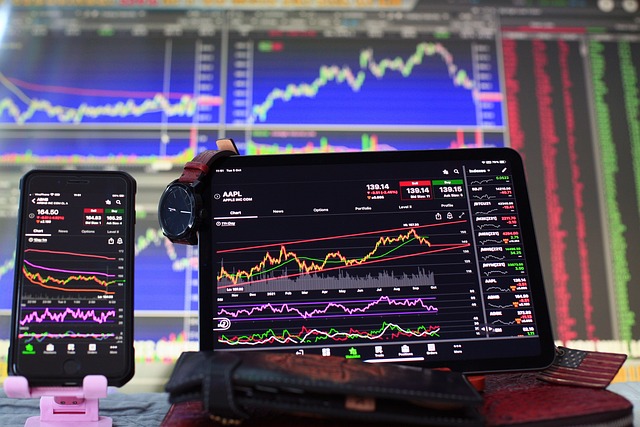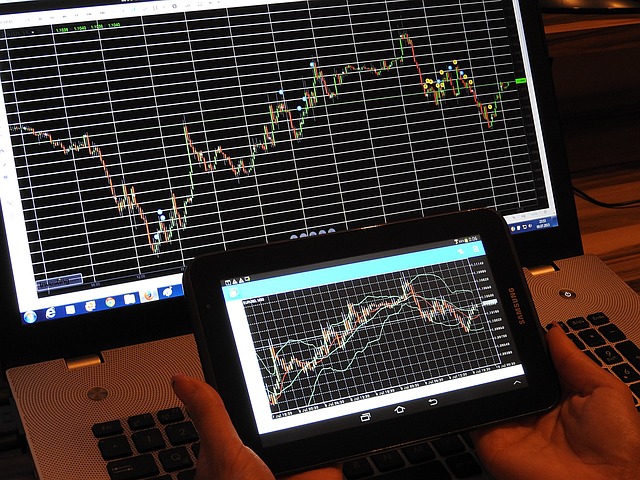The Rise of AI Trading Software: Revolutionizing the Financial Markets
The advent of artificial intelligence (AI) has transformed countless industries; among these, financial trading stands out as one of the most significantly impacted sectors. AI trading software is changing the landscape of buying and selling assets, providing traders of all levels with tools that not only enhance efficiency but also improve decision-making based on vast amounts of data. In this article, we will explore the intricacies of AI trading software—its advantages, the technology behind it, its future implications, and personal insights on its role in contemporary finance.

Understanding AI Trading Software
Before delving deeper, it’s essential to clarify what AI trading software is. At its core, AI trading software employs machine learning algorithms and advanced statistical methods to analyze market data, identify patterns, and execute trades autonomously or semi-autonomously. This technology can operate at a speed and efficiency far beyond human capabilities, allowing traders to capitalize on fleeting market opportunities.
How AI Trading Software Works
AI trading platforms utilize several key techniques to inform their trading strategies. The most significant among them include:
- **Machine Learning:** Algorithms learn from historical data and can self-improve by identifying trends and patterns that predict future price movements.
- **Natural Language Processing (NLP):** This enables the software to analyze news headlines, reports, and social media sentiment to gauge market psychology.
- **Predictive Analytics:** Advanced models predict asset price movements based on identified patterns, using historical performance as a benchmark.
- **Algorithmic Trading:** Automated systems execute trades at optimal moments without human intervention, significantly reducing the time lag that could cost a trader money.
Advantages of AI Trading Software
The use of AI in trading has a suite of advantages that can enhance traders' success rates. Here are some reasons why AI trading software is gaining traction:
1. Speed and Efficiency
AI trading software operates at incredibly high speeds. In a world where market conditions can change within seconds, these tools can analyze data, identify opportunities, and execute trades much faster than any human trader could. From my experience, this speed is a major advantage, as it allows users to enter and exit positions with precision, often making the difference between profit and loss.
2. Data Handling
The sheer volume of data present in the financial markets is overwhelming. Traditional analytical methods fall short when handling such extensive datasets. AI trading software excels at processing real-time data and sifting through vast historical sets to identify profitable trading opportunities. I find this ability to deep-dive into massive datasets fascinating and almost magical in nature—it transforms raw numbers into actionable intelligence.
3. 24/7 Trading Capability
Markets operate around the clock, especially when considering global exchanges. AI trading systems do not require sleep or breaks. This means trades can be executed based on emerging opportunities or market shifts any time of day or night. Personally, I find this continuous availability appealing, as I believe it maximizes potential profitability without the need for relentless human presence.
Challenges and Risks of AI Trading Software
Despite the myriad benefits, AI trading software is not without its challenges and risks. Below are some of the most pressing concerns:
1. Technical Failures
Like any software, AI trading systems can suffer from bugs, glitches, or outright malfunctions. In this fast-paced trading environment, a single misstep can lead to disastrous financial consequences. I am particularly cautious when using these systems; maintaining a backup plan is essential for safeguarding assets.
2. Over-Reliance on Algorithms
While AI trading software can analyze data far better than humans, there's a danger in becoming overly reliant on automated systems. Market conditions can change rapidly, and algorithms may sometimes struggle to adapt to unprecedented scenarios. In my view, human oversight remains crucial in trading, balancing the instinctual insights that experienced traders can bring.
3. Ethical Considerations and Market Manipulation
The use of AI in trading raises ethical concerns, particularly around market manipulation. As algorithms become adept at influencing market behavior, there is a risk of creating an uneven playing field. It’s an area that requires careful contemplation, and in my belief, regulatory bodies must evolve to address the challenges presented by AI-driven trading practices.

The Future of AI Trading Software
As technology continues to advance, the future of AI trading software looks incredibly promising:
1. Increased Personalization
We can expect AI trading software to adapt more to the individual user’s trading style and preferences. The more the software learns about a trader's behaviors, the better its predictions can become. Personally, I find this prospect exhilarating, as it promotes a more customized trading experience.
2. Enhanced Predictive Capabilities
As machine learning models evolve, their predictive capabilities will likely improve dramatically. This means AI trading software will not only react to market data but also anticipate market trends with greater accuracy. I believe that a future where AI can foresee market movements will profoundly impact trading strategies and approaches.
3. Integration with Other Emerging Technologies
As quantum computing, blockchain technology, and other innovations develop, there's potential for these technologies to augment AI trading software further. The integration of AI with these technologies can create even more sophisticated trading mechanisms, revolutionizing how we think about investing. This convergence piques my curiosity, as it opens up a realm of possibilities that are currently beyond our imagination.
Conclusion
In conclusion, AI trading software represents a monumental leap forward in the finance industry. While it bears several advantages in terms of efficiency and data analysis, its challenges and ethical implications cannot be ignored. Moving forward, the industry's players must find a balance between leveraging technology and preserving the human aspects of trading. As someone deeply interested in finance, I believe the ongoing evolution of AI within trading will be pivotal in shaping the future of financial markets, and I’m excited to be part of this unfolding narrative.